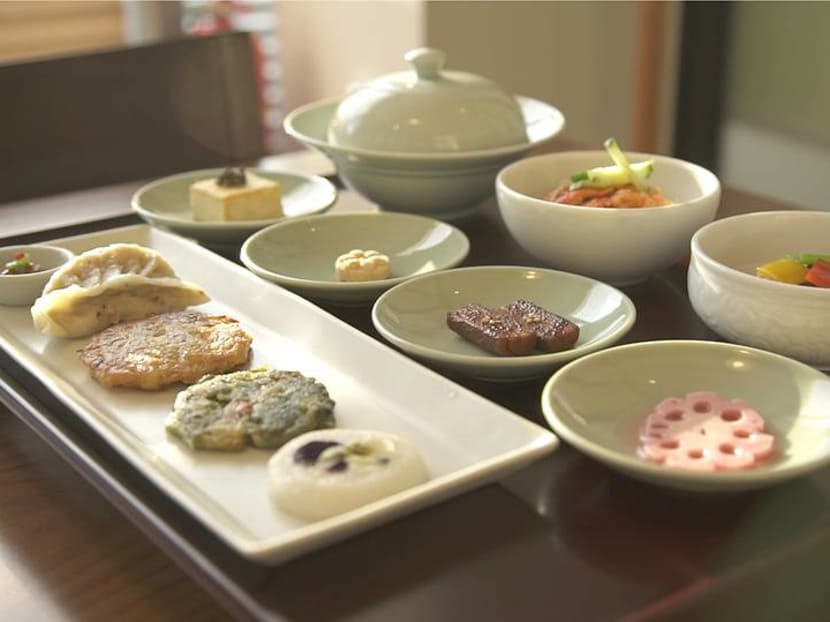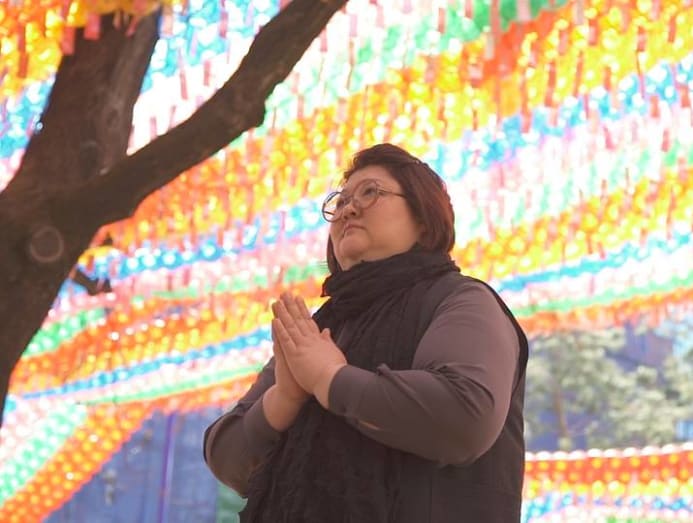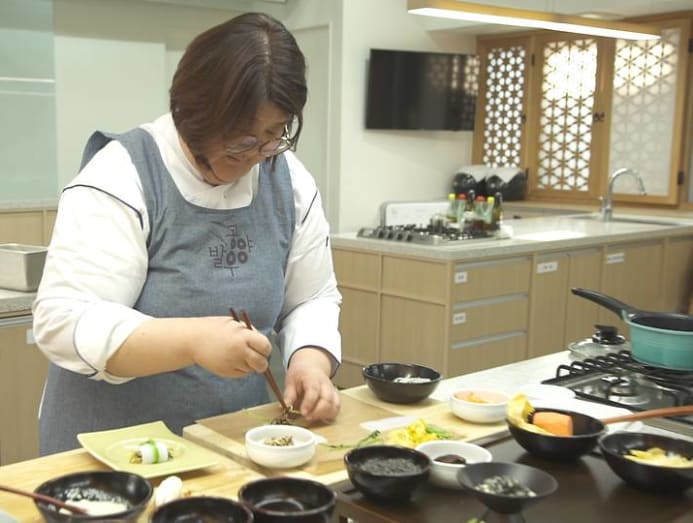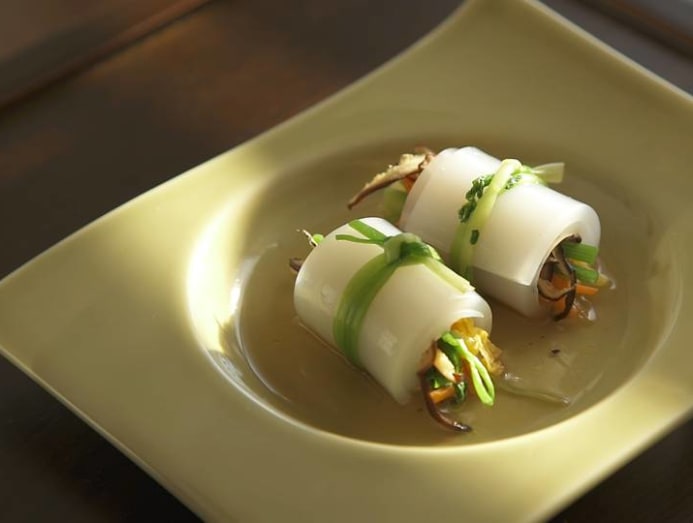In downtown Seoul, humble temple food given a makeover and a Michelin star
Advertisement
Remarkable Living
In downtown Seoul, apprehensive temple food given a makeover and a Michelin star
Chef Kim Ji Young of Balwoo Gongyang is grateful for the attending that the cuisine – which aims to nourish the body and listen – has received.

At the Balwoo Gongyang in Seoul, nutrient is prepared just but exquisitely. (Photograph: Threesixzero Productions)
fifteen May 2022 06:30AM (Updated: 04 Jul 2022 05:22PM)
Simple, apprehensive and mildly flavoured – that is what people typically call up of temple fare, given its vegan nature and lack of strong aromatics like garlic, onions, chives and leeks. While it serves its purpose of nourishing monks and nuns in accord to their way of life, information technology's certainly not the type of food that would ordinarily capture the involvement of the general public, allow lonely the Michelin Guide.
Not until Balwoo Gongyang opened its doors in Seoul, that is. Run by the Jogye Society of Korean Buddhism to promote the food culture of the faith, this eatery has been serving delicate temple cuisine since 2009. In 2016, it was awarded ane star by the very first Seoul edition of the Michelin food guide, which officially put Korean temple food under the city'southward culinary spotlight.
Kim Ji Young, the chef behind the uncomplicated yet exquisite food of the eating place, recognises the significance of the honor simply also knows that temple cuisine goes much deeper: "People started to learn more than almost temple cuisine after we got the Michelin accreditation and that'south a good affair… but, personally, I call up that Balwoo Gongyang doesn't necessarily demand a Michelin star – it'south more than almost how good the taste of baru gongyang dishes is."

"When people come to Korea and desire to endeavour temple cuisine, they don't know where to start. This is a place where they tin can experience that, too as an agreement [of] Buddhism," said Kim.
The allure of Korean temple food, as well the beauty of its simplicity, comes in function from its rarity outside of temple walls. While it is non impossible to find places that serve temple food, none of them are quite like Balwoo Gongyang, which only uses original, traditional recipes that are passed down in Korean temples.

The term baru gongyang refers to the monastic style in which nuns and monks in temples eat. "Baru is the bowl they eat from. Baru gongyang means yous take all the food including rice, soup, side dishes and fifty-fifty water in that basin and finish it. This mode, it'south not but eating simply besides training the mind… refraining from being greedy," explained Kim.
Kim started her culinary career in Korean royal court cuisine; it was her quest for natural food that later led her to temple cuisine. "People have the misconception that temple food must be simple and banal. I would like people to know that it can also exist special," said Kim.

Few cuisines are as focused on the seasonality of ingredients as temple food is – vegetables are used merely at the elevation of their flavor, which explains why menus are planned around what's available. Another fundamental principle of cooking temple food is to add as little equally possible to a dish – when seasonings are used minimally, the original flavor of fresh ingredients tin can so be appreciated fully.
Kim was trained past a leading master of temple nutrient – Venerable Seonjae of the Jogye Social club, who taught her infinitely more than than only culinary techniques. "Venerable Seonjae told me once that those who cook demand to be mindful of the people who swallow their food. I completely agree," said Kim.
Adapted from the serial Remarkable Living. Lookout full episodes on CNA, every Sunday at 7pm.
READ> A guide to sustainable eating – for you lot, the planet and generations to come
Source: https://cnalifestyle.channelnewsasia.com/remarkableliving/where-to-eat-in-seoul-temple-food-south-korea-michelin-star-239681
Post a Comment for "In downtown Seoul, humble temple food given a makeover and a Michelin star"